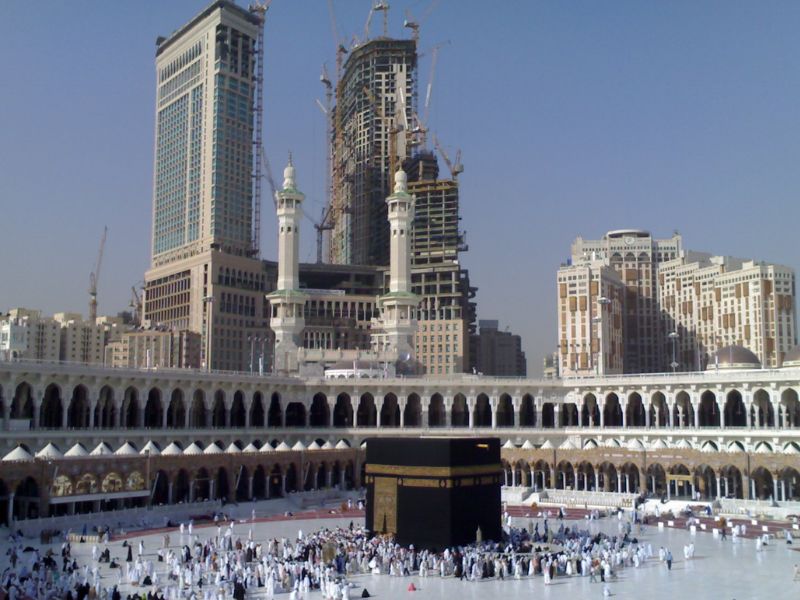Saudi Arabia: A Foundation for the Islamic Faith, Islamic Extremism

11/26/2024 Saudi Arabia (International Christian Concern) — The largest country in the Middle East is fueled by religious fundamentalism and enormous oil reserves that give the government outsized control over its people.
Successive members of the Al Saud family dynasty have ruled the Kingdom of Saudi Arabia since its founding in 1932. The Kingdom is governed by a fundamental, reformist interpretation of Islam called Wahhabism. Followers of Wahhabism, or Salafists as they call themselves, see their cause as one of returning to the core of Islam, simultaneously a religious and a political cause that has resulted in sharply decreased freedoms for followers of other faiths in Saudi Arabia.
Quick Facts
Population: about 36 million (2023 estimate)
Religions: Sunni Muslim 85%-90%; Shia 10%-12%; Other 1%-5%
Ethnicities: Arab 90%; Afro-Asian 10%
Types of Persecution
Government Restrictions — The Saudi government imposes a strict version of Sharia law that prohibits conversion from Islam and “blasphemous” comments about Islam, among other things.
Social Pressure — The heavily Muslim-dominated culture in Saudi Arabia can lead to the ostracization of Christians and other minorities at both the family and the community levels.
Summary
Despite occasional attempts to whitewash its record on religious freedom, Saudi Arabia is unflagging in its efforts to elevate Islam above all other beliefs. A network of laws, many uncodified because they are based on nebulous Sharia law, relegate non-Muslim citizens to second-class status and prohibit blasphemy, a crime that essentially prevents minority religious beliefs and expression. According to the 1992 Saudi Basic Law of Governance, the constitution is the Quran and the sunna, or traditions of the prophet Mohammed, leaving few limits on the monarchy’s power to rule as it chooses.
Though there were steps made in 2022 to codify the law, it remains largely unwritten, allowing for arbitrary and unchecked legal attacks on religious minorities. The judicial system perpetuates this system of repression, and the monarchy carefully manages it to ensure that religious dissent is swiftly and rigorously punished.
Systematic purges of judges and their replacement by more radical justices could be “impacting ongoing legal cases against religious minorities and dissenters,” according to a 2023 USCIRF report. “Beginning in the summer of 2022, Saudi courts began issuing egregiously long prison sentences against dissidents — including religious dissidents — who peacefully expressed their beliefs.”
Human rights groups and survivors of the Saudi penal system report regular torture and the acceptance of forced confessions in court in a practice that contradicts international human rights standards on the treatment of prisoners and the acceptable use of evidence. In 2022, a group of 81 men were executed in what the U.S. Department of State called “the largest known mass execution carried out in the kingdom’s history.” Among those executed were dozens of religious minority Shia Muslims.
Speaking in a TV interview, the head of the Committee for the Promotion of Virtue and Prevention of Vice dismissed the mass execution as the “eliminat[ion of] violators,” calling it “one of the most legitimate actions … to preserve religion.”
International law requires that the death penalty be reserved for only the most serious crimes. However, with its lack of a written penal code and the wide sentencing discretion given to judges, Saudi Arabia is notorious for handing down the death penalty in cases where such a punishment is patently undeserved.
In response to Saudi Arabia’s consistently egregious record on religious freedom, the U.S. Commission on International Religious Freedom has recommended adding it to the Countries of Particular Concern (CPC) list every year since 2001, when it began making the recommendations.
ICC in Saudi Arabia
Saudi Arabia’s position as a leading global oil producer means that it typically escapes unscathed when it violates human rights, including freedom of religion, even on a mass scale or within the sovereign borders of another country. This necessitates significant advocacy efforts in Washington, D.C., and beyond. ICC works to bring the issue of religious repression to light through its reports and in meetings with policymakers.
To read our coverage of persecution-related news from Saudi Arabia, visit the ICC Newsroom. For interviews, please email [email protected].
